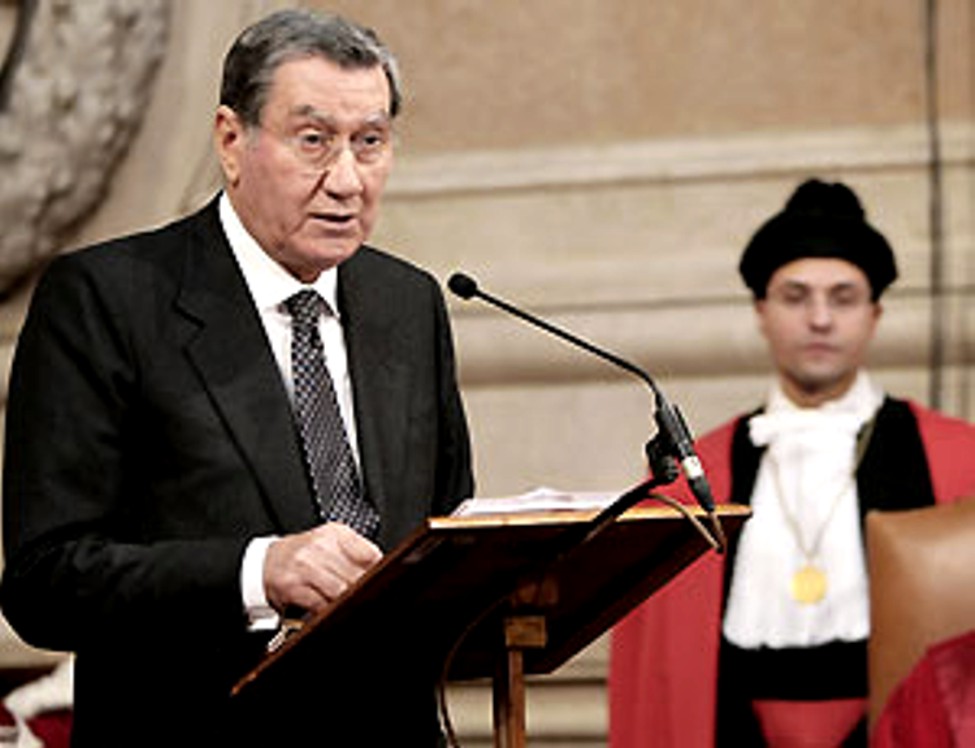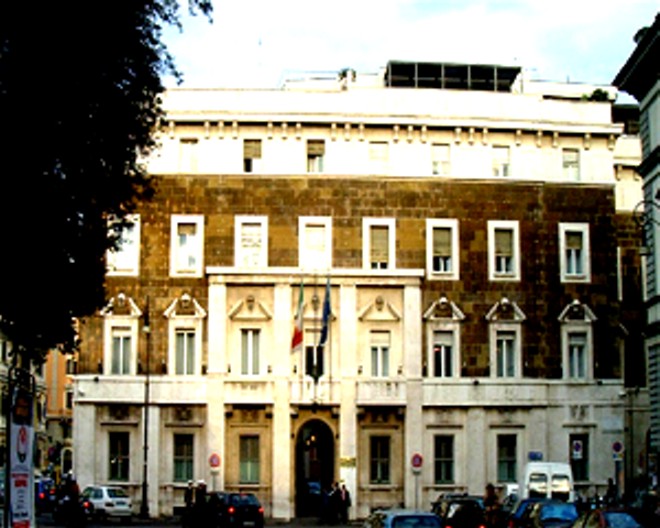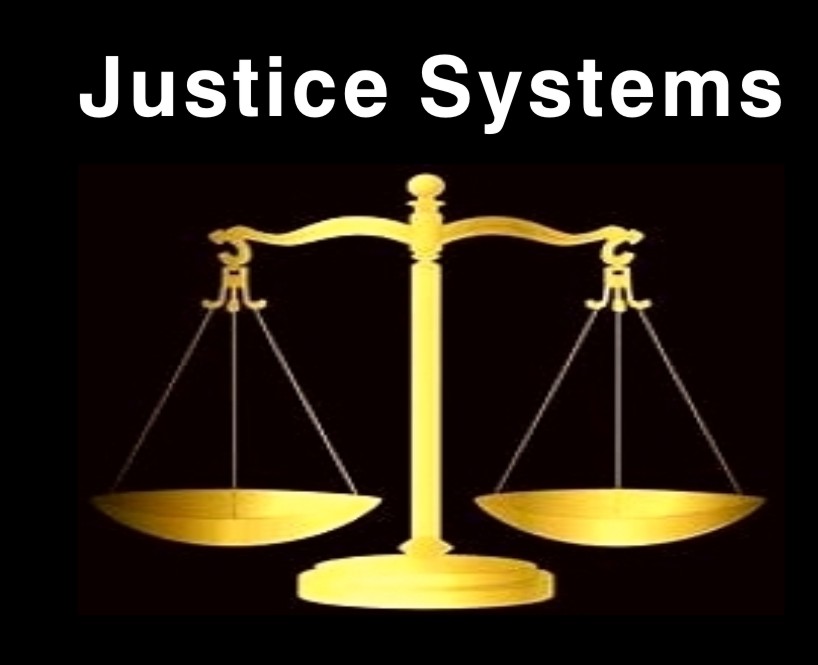
Why The Italian Judiciary Is Probably Less Prone to Pressure Than Any Other In The World

Image above: The Consiglio Superiore della Magistratura in session
Some of the very best lawyers in the UK and USA and around the world are learning a lot about the Italian system by way of the Perugia trial - and are in many, many ways impressed.
Italian magistrates enjoy an extraordinary level of autonomy from the other powers of government (executive and legislative) and the point of this post is to explain why. This autonomy is above all due to the Italian constitutional framework.
That framework is intended to guarantee such an exceptional level of independence so as to avoid the abuses that occurred during Mussolini’s fascist regime, when Italian magistrates were forced by the executive to prosecute (and persecute) political opponents to the fascist dictator.
The source of such independence is set forth in Title IV of the Italian Constitution which in particular provides for an independent body [image at top here] which is called the “Consiglio Superiore della Magistratura” or C.S.M. (Superior Council of Magistrates). This is the self-governing body for Italy’s judiciary, and it comprises ordinary (civil and criminal) judges and prosecutors.
Its competence is based upon Articles 104 and 105 of the Italian Constitution, as well as several ordinary laws. Article 105 says that the C.S.M. is responsible for the hiring, training, assignments, transfers, promotions, appointments to the Supreme Court of Cassation, disciplinary actions and terminations of all Italian judges and prosecutors.
Article 104 opens with the statement: “Magistrates constitute an order autonomous and independent from any other power”. The article then proceeds to provide norms relating to the composition of such a self-governing body.
In order to guarantee the independence of magistrates and in accordance with the general principle of the balance of powers, the constitution establishes a mixed composition of the members of the CSM.
According to the constitution, two thirds of its components are in fact judges elected by all magistrates (judges and prosecutors) in special nationwide elections of the CSM (these are called “membri togati”, i.e. judicial members).
And one third is chosen by Parliament among law professors and attorneys with at least 15 years of experience (these are called “membri laici”, i.e. lay members). And in addition, there are three so called “˜De Jure’ members:
- the President of the Republic, who is the President of the CSM
- the President of the Supreme Court of Cassation
- the General Prosecutor before the Supreme Court of Cassation
The CSM then elects the Vice President of the Council choosing among its lay members appointed by Parliament. The Vice President is the real acting President of the CSM, since the role of the President of the Republic is primarily symbolic. The current Vice President of the CSM is Nicola Mancino [image below} who is a former Speaker of the Italian Senate.

Image above: Nicola Mancino, Vice President of the C.S.M., addressing the Council
The constitution establishes the above mentioned proportions, but not the number of members. However a law passed in 2002 sets the number of elected members at 24. Therefore at present there are 16 members (all judges) elected by magistrates and 8 members appointed by Parliament. With the three “De Jure” members the total is therefore 27 members.
The position of member of the CSM is incompatible with that of legislators, therefore CSM members cannot be members of Parliament or members of the Regional Assemblies.
Art. 107 reiterates the extraordinary independence of magistrates (judges and prosecutors) by stating: “Magistrates are not removable. They may not be dismissed or suspended or transferred to other locations or functions if not after a decision of the CSM, adopted either for reasons and with the guarantees established by law or with the magistrate’s consent.”
Ordinary laws also confer other powers to the C.S.M. including the power of giving opinions to the Government and to Parliament on proposed laws affecting the order of magistrates and the judiciary in general.

Image above: Palazzo dei Marescialli in Rome. The Seat of the C.S.M.
The extraordinary independence of Italian magistrates, especially considering that Italy is probably the only country in the world where not even State prosecutors report to the executive power, has created a lot of tensions between magistrates and politicians.
The Italian Prime Minister, Mr Silvio Berlusconi, who is indicted and undergoing prosecution in over twenty separate cases, some of which already concluded (for bribing of judges, illegal campaign financing, tax evasion, fraudulent accounting) dating back to the time before he entered politics in 1994, has often accused magistrates of having proceeded against him for politically motivated reasons.
His pressures on the CSM to discipline those magistrates whom he alleges are politically motivated in their prosecutions against him, have not succeeded, and the CSM has always defended the actions of magistrates against the frequent attacks from the executive power and from the many politicians who are under investigation for corruption and other crimes.
Recently Mr Berlusconi’s coalition passed a law to guarantee immunity from prosecution to the four highest offices of the Republic, including that of the Prime Minister, but the Supreme Constitutional Court struck it down as unconstitutional.
Currently out of 945 Members of Parliament in the two houses, there are about two dozen convicted felons and over 70 more under investigation by Italian magistrates. They’re all holding to their seats very tightly, since all members of the Italian parliament are immune from arrest, if not from prosecution.
Pressure on this extremely powerful and immune judiciary has not worked where real heavy-handed political and media persuasion was attempted. Be assured, the judiciary in Perugia will take no notice of it at all.
Comments
Ciao Commissario, and thank you for another superb post!
So far for the most part the US media have shown utter ignorance and quite a lot of prejudice when describing the Italian justice process.
Hopefully they will learn something from your truly enlightening post.
Hi CM,
Thank you for writing this detailed and illuminating piece about the Italian legal system.
It’s reassuring to know that the judiciary in Perugia will not be influenced by outside pressure. The prosecution and defence have presented their cases in court. The two judges and six members of the jury will weigh the evidence and reach their verdict in December. That’s the way it should be.
Justice should never be in the hands of incompetent journalists who are ignorant of the basic facts about the case and individuals who are cynically trying to profit from this tragedy.
Curt Knox and Edda Mellas, and Francesco Sollecito seem to think that spending vast sums of money on expensive lawyers and mercernary experts should buy them justice.
The Italian justice system should be applauded rather than vilified for its independence and integrity.
This is a clear and welcome exposition of how the Italian judiciary is appointed and run.
This trial has resulted in much interest in and scrutiny of the Italian system, not all of it positive.
Criticism of any institution should depart from a knowledge of its workings, and articles like this contribute to the education of us all.
Thank you Commissario.
Thank you, Commissario, for this interesting background.
Where next:
Click here to return to The Top Of The Front PageOr to next entry Explaining How The Italian Appeals Process Works
Or to previous entry Why The Prosecutors In Italy Are Relatively Popular
